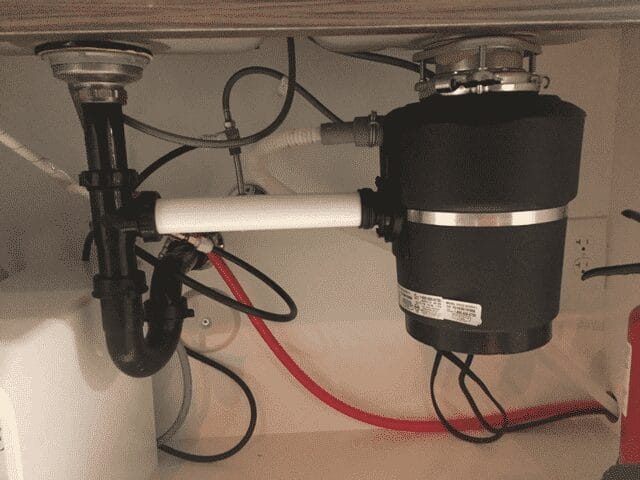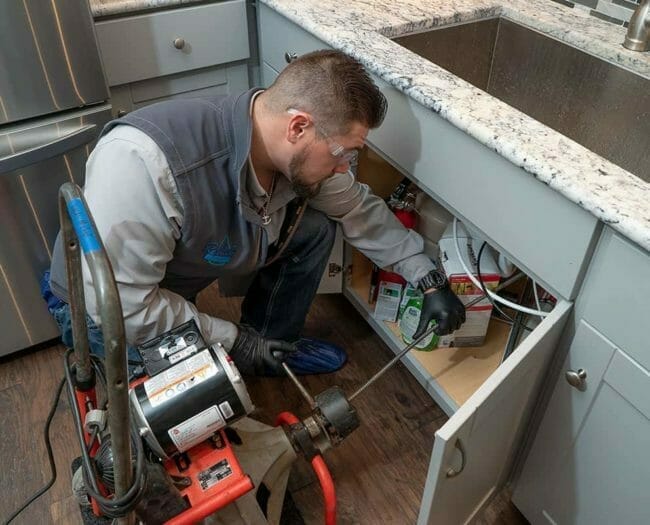5 Tips for a Healthy Garbage Disposal
Table of contents
A kitchen is only as efficient as its plumbing, and your garbage disposal often works harder than you realize. When it’s clogged or misused, it can lead to foul odors, backups, or even expensive repairs. But with just a few smart habits, you can keep your disposal running smoothly for years. In this post, we’ll share 5 essential tips to maintain a happy, healthy garbage disposal — so you can avoid headaches and keep your kitchen running clean and stress-free.

1. Avoid Harmful Foods
Not everything belongs in your garbage disposal. Fibrous vegetables like celery, potato peels, corn husks, and onion skins can wrap around the blades and cause jams. Grease, oils, and fats are also major culprits, solidifying in your pipes and creating clogs. As a general rule: if it’s stringy, starchy, or fatty, toss it in the trash or compost instead of the disposal.
Avoid putting these foods in the garbage disposal or sink:
- Vegetable Peels like potato, celery, and carrot.
- Fruit Pits like cherries or plums
- Coffee Grounds
- Animal Bones
- Noodles and Pasta
- Eggshells
- Grease
2. Run It with Plenty of Water

Your garbage disposal needs water to do its job effectively. Always run cold water while the disposal is on, and keep it flowing for about 15 seconds after you turn it off. The extra rinse helps flush small food particles through your pipes so they don’t linger and cause odors or buildup.
After use, once the grinding noise stops, let your garbage disposal run for five more seconds. This prevents the blades from stopping prematurely and ensures that the waste will be properly disposed of. Plus, it will also ensure every bit of food put into the garbage disposal goes down the drain in as small of pieces as possible.
3. Space Out Appliance Use
If your dishwasher and garbage disposal share the same drain line, avoid running them at the same time. Running both can put excess strain on your plumbing system and increase the risk of clogs. Staggering appliance use ensures your drain line stays clear and your disposal works efficiently.
4. Schedule Preventive Maintenance

Like any hardworking appliance, your garbage disposal benefits from routine checkups. Have a plumber inspect it annually to make sure it’s grinding properly, flushing food waste completely, and staying leak-free. During these visits, plumbers can also check your drain lines for early signs of buildup that might cause future problems.
5. Be Mindful of How Much Goes Down the Drain
Even with careful use, it’s easy to accidentally overwork your disposal. Feed food scraps gradually instead of all at once, and break larger items into smaller pieces when possible. If you ever notice odd noises, slow draining, or unpleasant odors, those are early warning signs that something’s wrong. Catching issues early can save you from a full disposal replacement.
Keep Your Disposal Running Strong
Your garbage disposal is a hardworking but often overlooked component of your kitchen’s plumbing system. By following these five key tips — avoiding harmful foods, running it with plenty of water, spacing out appliance use, scheduling regular maintenance, and staying mindful of how much goes down your drains — you can reduce breakdowns, prevent clogs, and extend its lifespan.
If you ever run into a disposal that’s not performing right, or suspect a deeper plumbing issue, don’t hesitate to reach out to your local plumbing professionals. A quick tune-up now can save you from costly repairs later.
